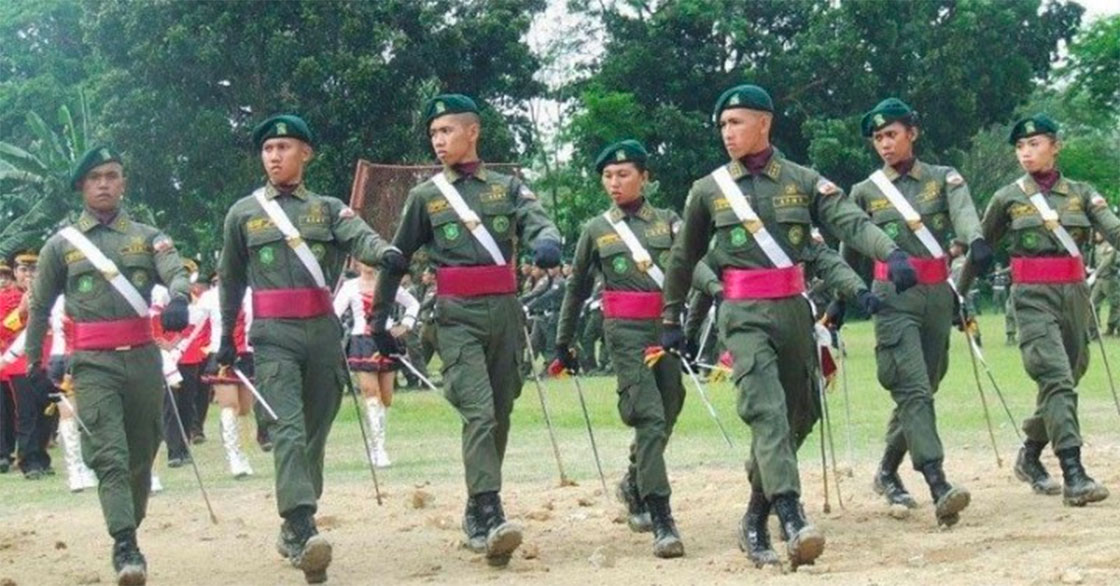“Harap sa kaliwa, harap sa kanan!” These are the usual lines students used to clamor thencefort taking Reserve Officers’ Training Corps program (ROTC). However, because of reported abuse and hazing, the program came to a halt.
In 2019, the House of Representatives passed the House Bill No. 8961 on the final reading entitled Reserve Officers’ Training Corps (ROTC) Act,” which seeks to institutionalize, develop, train, organize and administer basic ROTC in Grades 11 and 12 in all public and private educational institutions.
The bill provides that a mandatory two-year Basic ROTC program shall be established for all students enrolled in Grades 11 and 12, which shall form part of the basic curricula for the Senior High School Education and, thus, qualified for graduation.
In addition, the ROTC program shall also aim to instill patriotism, love of country, moral and spiritual virtues, respect for human rights and adherence to the Constitution.
This came about as a result of former president Rodrigo Duterte’s frequent calls for ROTC to be made compulsory in order to “instill patriotism.”
Now, following the National Service Training Program Act of 2001’s passage into law in 2002, ROTC in colleges is solely optional.
Under Section 3 (Definition of Terms) of the said act, National Service Training Program (NSTP)” is a program aimed at enhancing civic consciousness and defense preparedness in the youth by developing the ethics of service and patriotism while undergoing training in any of its three (3) program components. Its various components are specially designed to enhance the youth’s active contribution to the general welfare.
(b) “Reserve-Officers’ Training Corps (ROTC)” is a program institutionalized under Sections 38 and 39 of Republic Act No. 7077 designed to provide military training to tertiary level students in order to motivate, train, organize and mobilize them for national defense preparedness.
(c) “Literacy Training Service” is a program designed to train students to become teachers of literacy and numeracy skills to school children, out of school youth, and other segments of society in need of their service.
(d) “Civic Welfare Training Service” refers to programs or activities contributory to the general welfare and the betterment of life for the members of the community or the enhancement of its facilities, especially those devoted to improving health, education, environment, entrepreneurship, safety, recreation and morals of the citizenry.
To recap, the death of Mark Welson Chua, a University of Santo Tomas student who had exposed corruption in the school’s ROTC program prompted the law to take effect.
Meanwhile, President Ferdinand Marcos Jr. urged to reinstitutionalize the Reserved Officers’ Training Corps (ROTC) program for senior high school students on Monday during his first State of the Nation Address (SONA). Putting it as one of his administration’s top priorities.
In all public and private institutions, Grades 11 and 12 students would be required to participate in the National Service Training Program (NSTP) and the ROTC.
He said that “The aim is to motivate, train, organize, and mobilize the students for national defense preparedness, including disaster preparedness and capacity building for risk-related situations.”
As a parent or student, are you in favor of President Ferdinand Marcos Jr.’s proposal?
READ ALSO:
- A bill to protect Under De Saya husbands from abusive wives filed in the 19th Congress
- Senate passed a bill on permanent validity of birth, death and marriage certificates
- Sen. Loren Legarda first to file One Tablet One Student Bill in the 19th Congress
Featured Image: From Philippine News Agency

